
Overview: The immune system
The immune system is a complex, integrated and multilayered defense mechanism that monitors body fluids for pathogens, foreign antigens and transformed cells. The system consists of two major components, innate (non-specific) immunity and adaptive (specific) immunity.
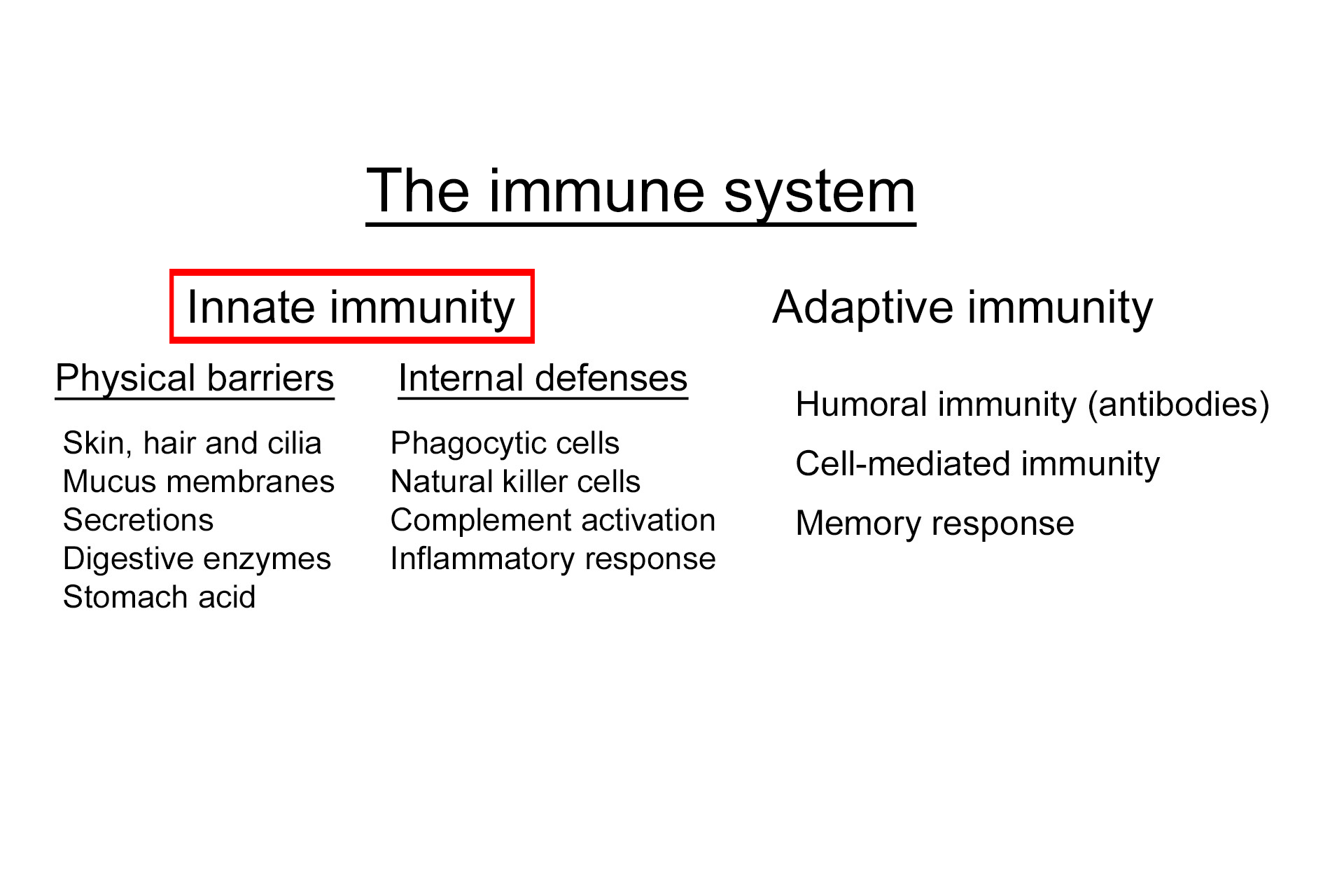
- Innate immunity >
Innate immunity, the so-called “first line of defense”, consists of components that are present at birth as well as others that develop over the lifespan of an individual. Responses of the innate immune system are rapid (minutes to hours) and less specific than those of the adaptive immune system, which can require weeks. The innate system can also inform and modulate the adaptive immune response.
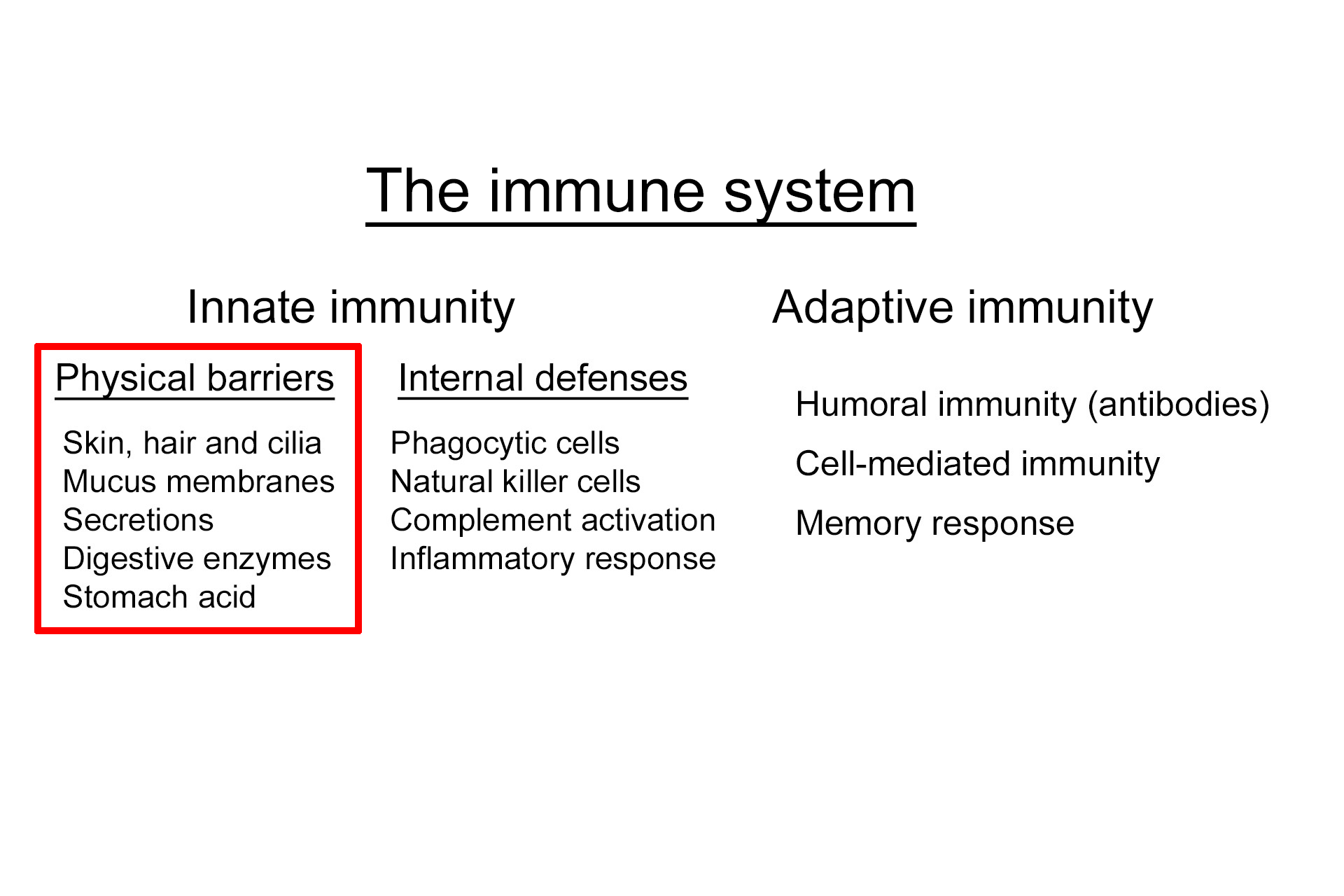
-- Physical barriers >
The innate immune system initially consists of physical barriers to pathogens, such as the skin and mucus membranes, as well as chemical defenses including digestive enzymes and stomach acid that destroy microorganisms.
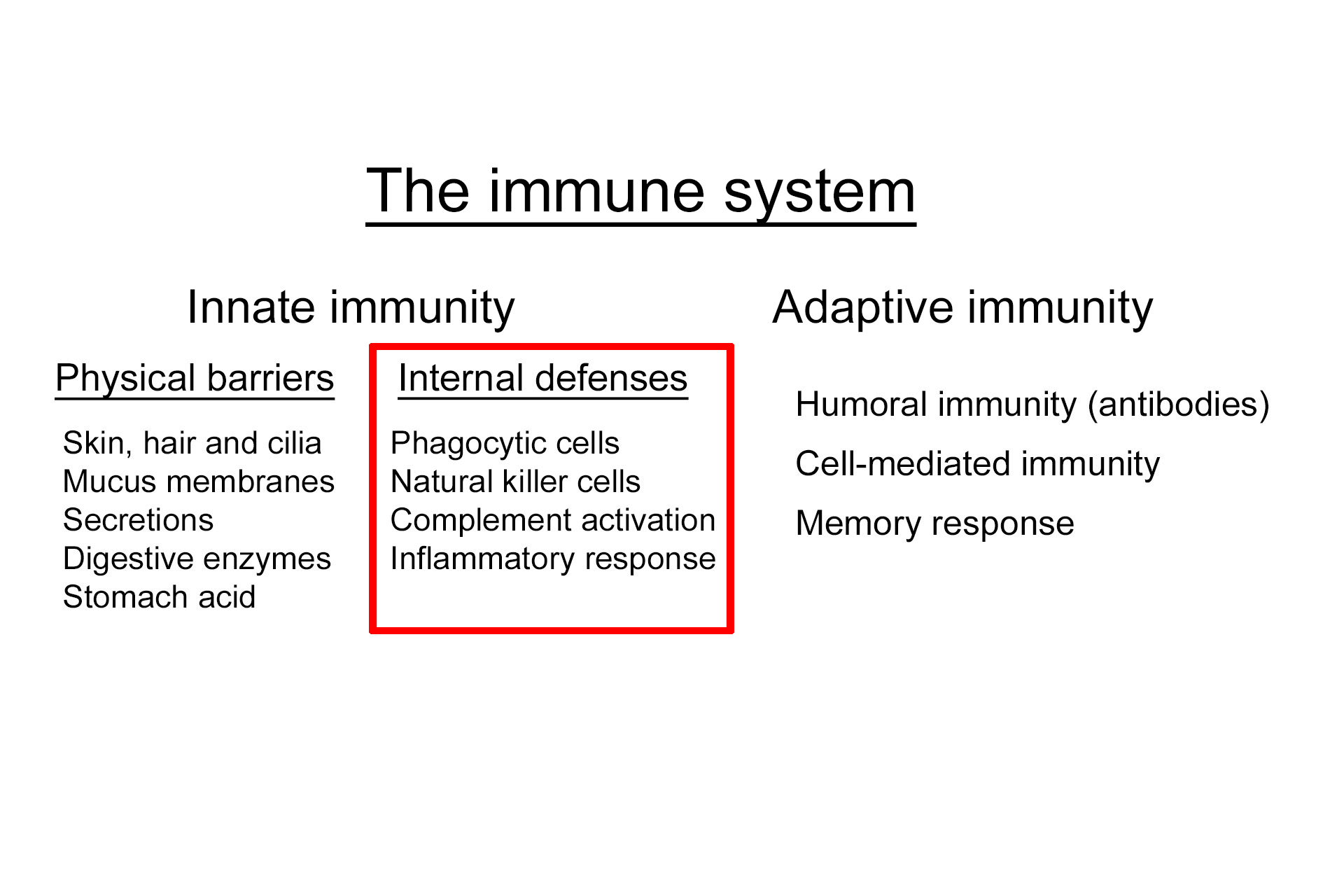
-- Internal defenses >
Pathogens that evade the physical barriers and enter the body are met with a variety of internal defenses consisting of phagocytic and natural killer cells as well as chemical defenses including complement activation and inflammation.
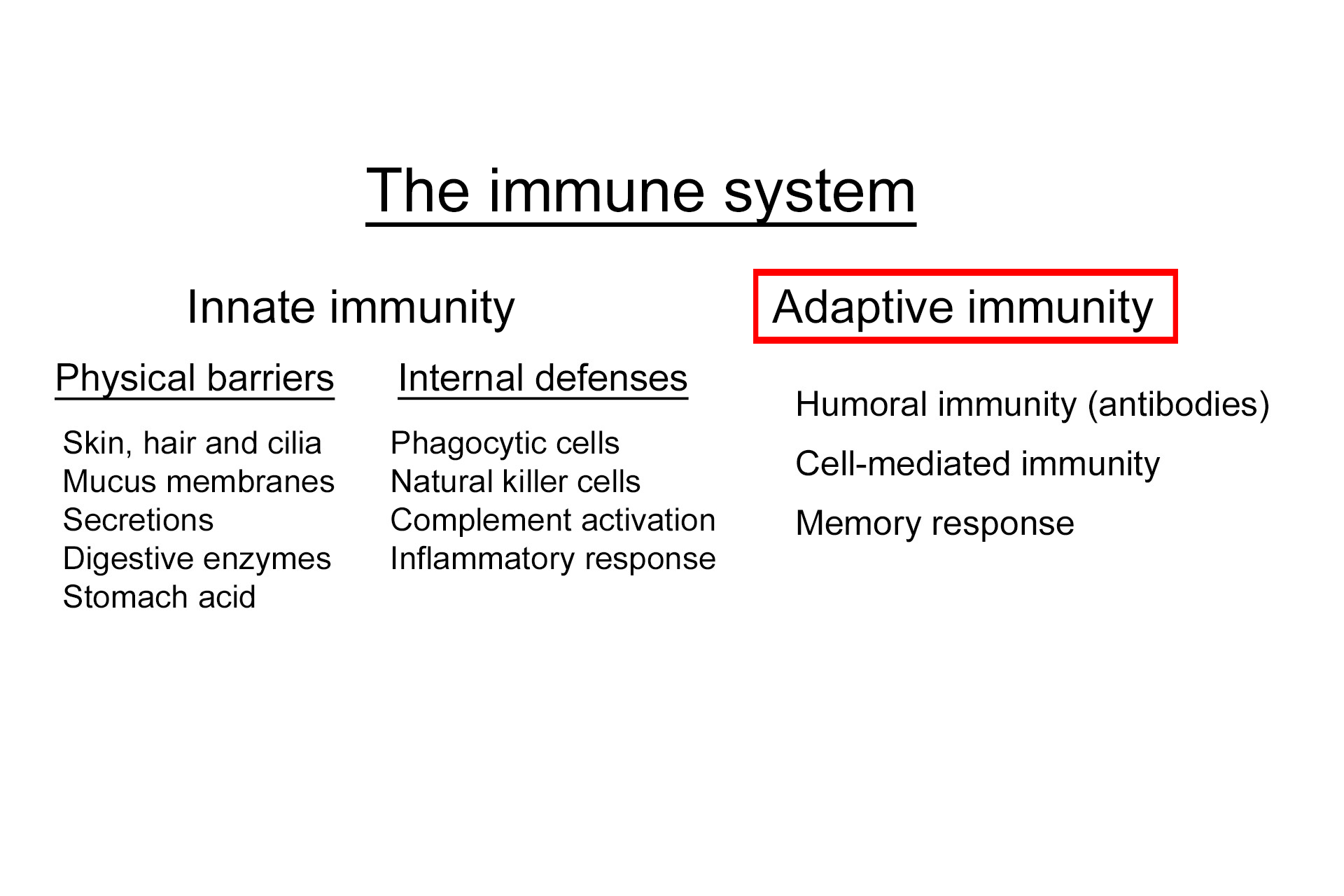
- Adaptive immunity >
Adaptive immunity takes longer to develop but is highly specific for a particular pathogen or toxin. The presence of an antigen, defined as any substance capable of eliciting an adaptive immune response, leads to the activation of effector lymphocytes, B cells and T cells. Adaptive immunity has two components, humoral and cell-mediated.
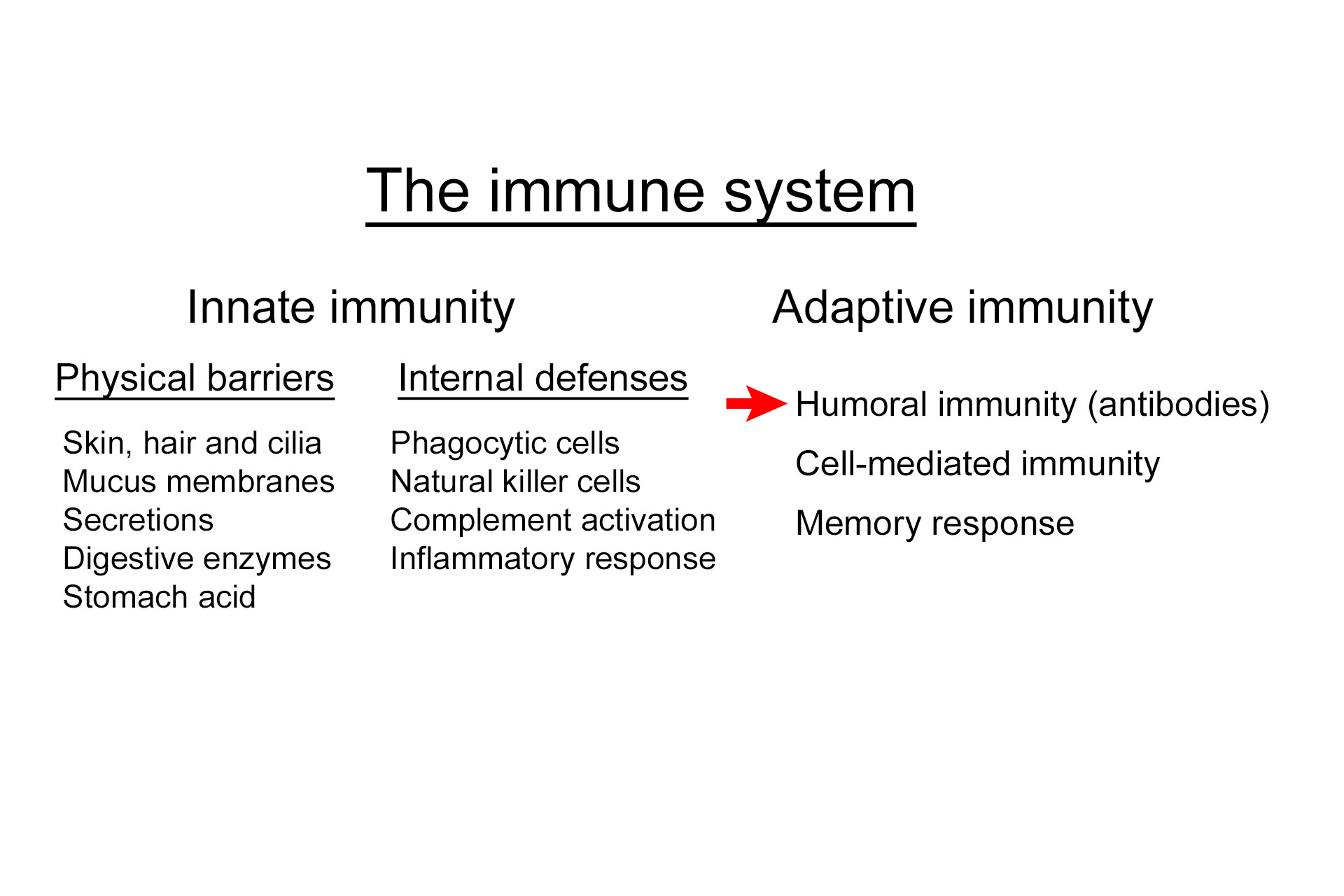
-- Humoral immunity >
Humoral immunity entails the secretion of antibodies (immunoglobulins) by activated B lymphocytes. Antibodies are multimeric proteins that recognize and bind to specific antigens. They can inactivate viruses and microbial toxins, as well as marking invading pathogens for destruction by phagocytic cells.
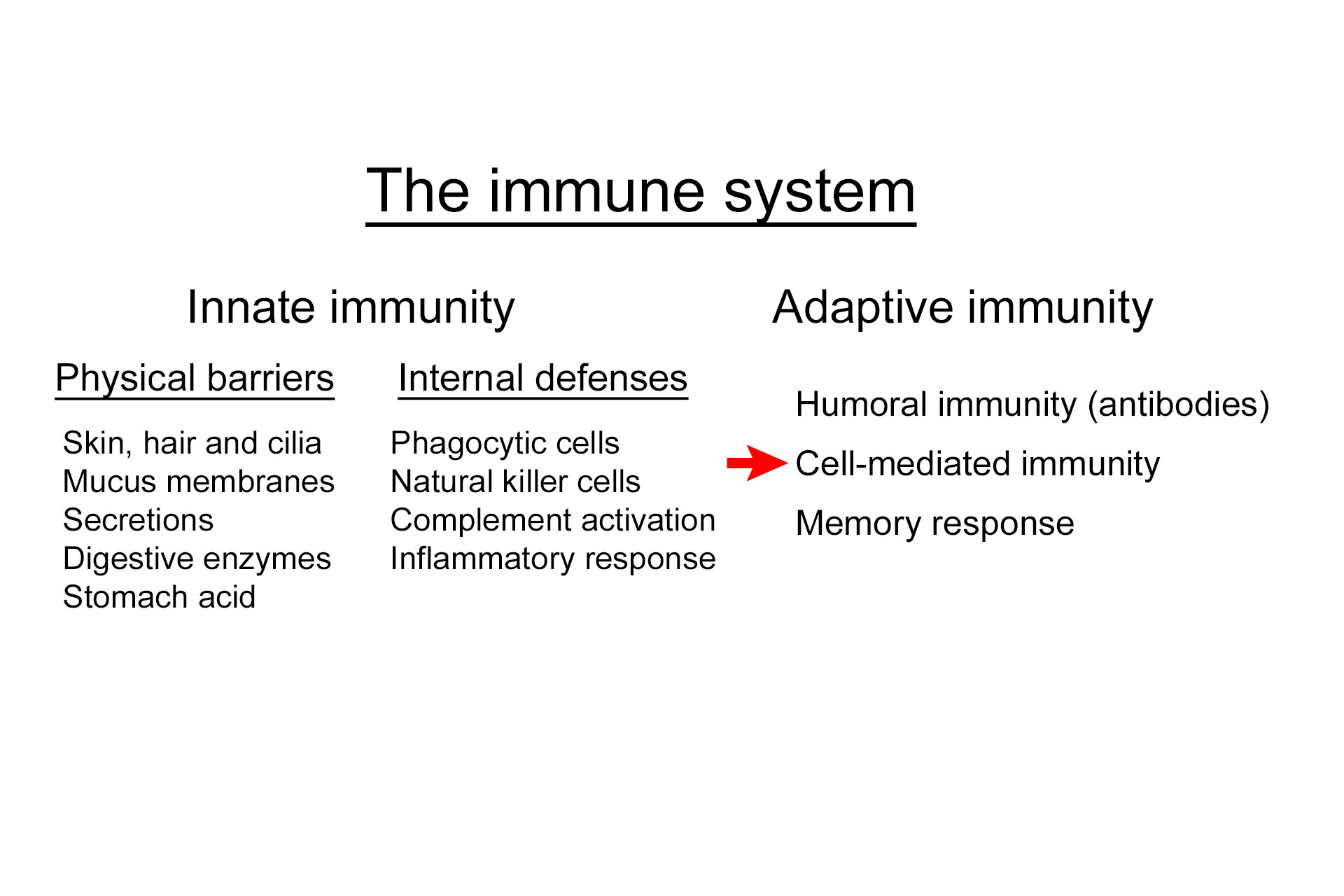
-- Cellular immunity >
Cellular immunity entails the activation of T cells that can react against a foreign antigen present on the surface of a cell. T cells are capable of killing virus-infected host cells as well as transformed cancer cells. Additionally, T cell activation can lead to the production of signaling molecules that activate macrophages to destroy invading microbes.
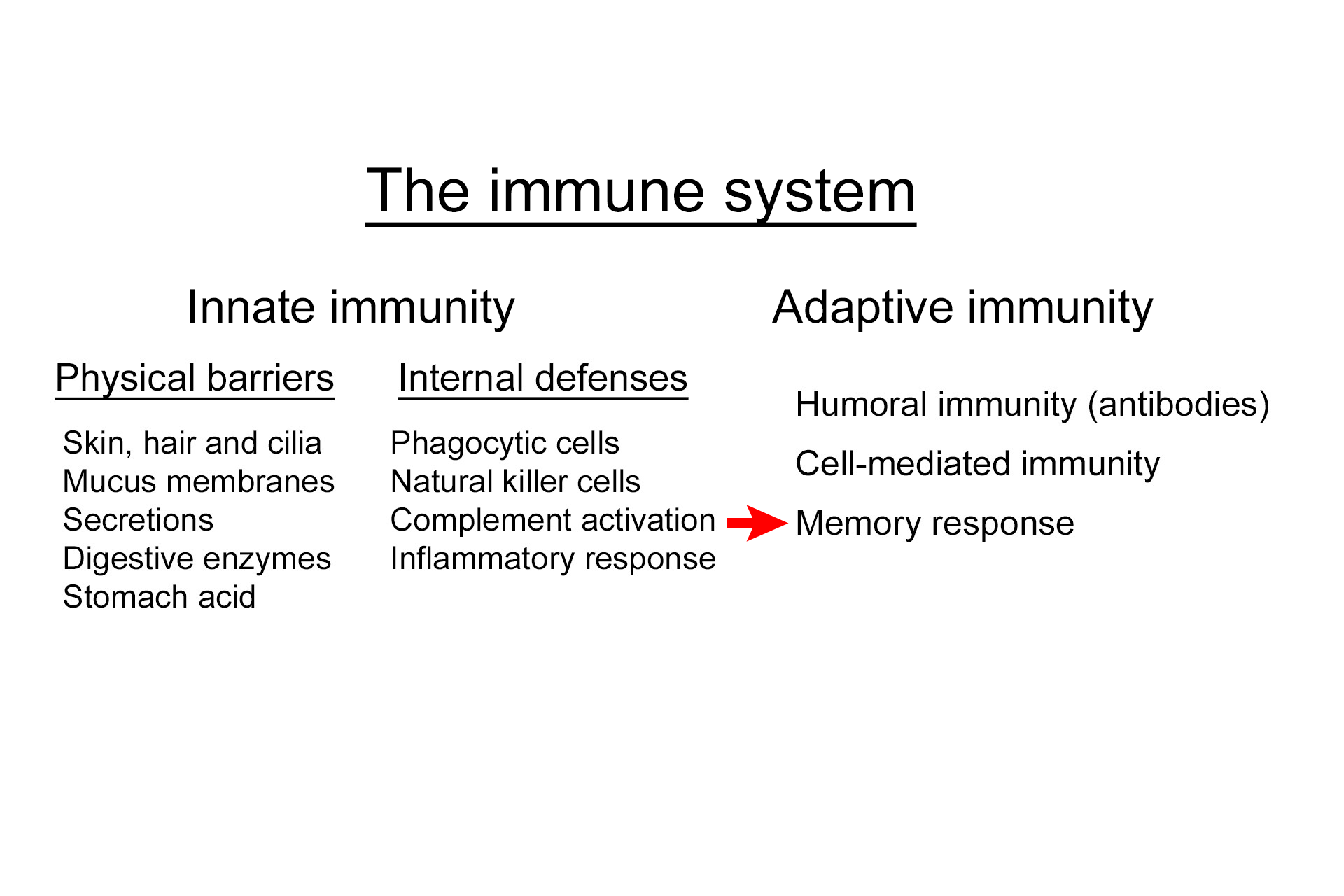
-- Immunological memory >
The adaptive immune response system can remember specific antigens to which is has been exposed, thereby providing long-lasting defense and protection. Subsequent exposure to an antigen, results in a much swifter response to prevent infection. Vaccination is a method to produce immunological memory.